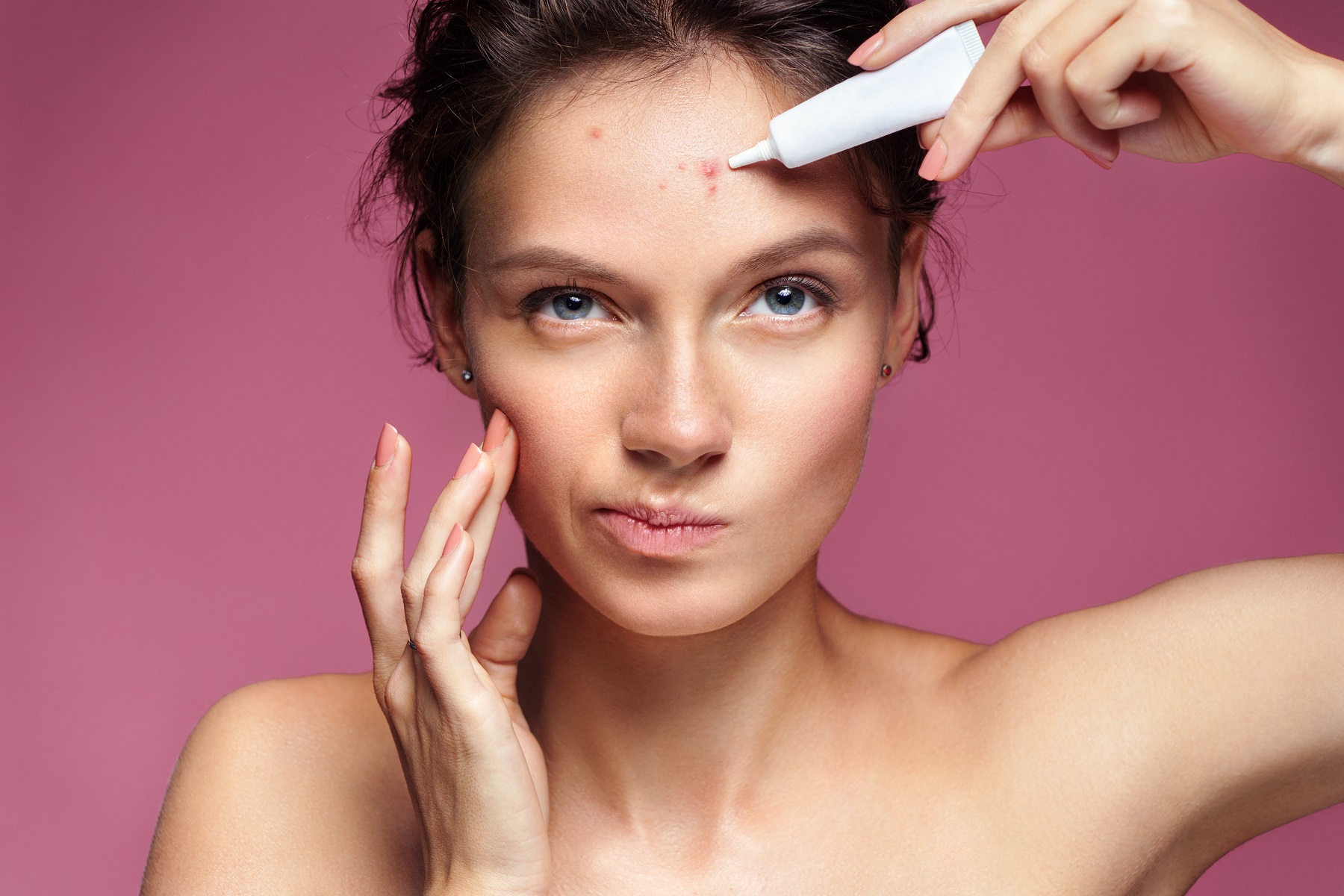Skin Spectrum’s Top 10 Tips for Acne
Published on September 16, 2015 by Skin Spectrum

With school starting back up again, a lot of our patients have been wondering what they can do to get their skin looking its best. Acne is a very common condition, which can occur in people of any age – from babies to the elderly. However, we tend to see it most often in our teenaged patients. Here are some of our favorite skin care tips for acne-prone skin:
- Wash your face twice daily. Over the course of the day, our skin gets covered in makeup, sunscreen, sweat, dirt, oils, bacteria, and environmental pollutants, all of which can contribute to clogging our pores and creating new blemishes. Cleansers help remove all of the day’s residue from our skin, and help our topical medications penetrate deeper. Some cleansers are specially formulated with ingredients like salicylic acid and benzoyl peroxide, which are particularly effective against the bacteria that cause acne. We especially like the Obagi CLENZIderm line, and the SkinCeuticals Clarifying Cleanser. That said, it’s also important not to overdo it either – washing our faces too frequently, or with overly harsh products can be irritating to the skin, and can make acne worse in the long run.
- Adding a Clarisonic brush to your skin care regimen is a great way to gently exfoliate and clean your skin. The Clarisonic brush works much like a sonic toothbrush, removing dirt, oil, and debris from your skin and giving your pores a deep cleansing to prevent breakouts. Start out using your Clarisonic 3-4 times weekly, and gradually increase till you can use it every night.
- Look for makeup, sunscreens, and toiletries that are “non-comedogenic.” This means that they have been formulated so that they are less likely to clog your pores and cause whiteheads and blackheads.
- It’s best to avoid makeup products that contain talc. Talc is a common ingredient in foundation, blush, face powder, and eye shadow. We often find that talc-containing makeup products can make acne worse in a lot of our patients. We recommend talc-free, mineral makeup for our acne patients – luckily, the entire Colorescience makeup line has been formulated without any talc or mineral oils, and doubles as your daily sunscreen as well!
- Pay attention to what’s going on your hair. This one is particularly important for the guys, especially if you find that you’re mostly breaking out on your foreheads. Pomade acne is a type of acne that is triggered by the oils and fragrances in thicker hair gels, waxes, and pomades. If these oils and chemicals get on your skin, they can irritate and clog your pores and worsen your acne. Try using lighter styling products, and shampooing them out of your hair nightly before bed. Do you wear hats or helmets often? Make sure you’re cleaning them regularly to keep them from reinfecting your skin.
- Clean your linens regularly! Often times, everyday objects that touch our skin and our faces can trigger reinfection with acne-causing bacteria, and cause breakouts. Pillowcases, washcloths, and face towels become saturated with dead skin cells, oils, and dirt with daily use, and quickly become breeding grounds for bacteria. Try to change out your pillowcases and towels at least twice weekly to make sure they’re always clean. Cell phones and makeup brushes can also be common culprits – make sure you’re wiping down the screen of your phone regularly, and cleaning your makeup brushes at least monthly.
- Pay attention to your diet. For many years, doctors believed that diet played no role in acne. However, more recent studies suggest that what we put in our bodies can play a role in the health of our skin. Dairy products, such as milk, cheese, yogurt, and ice cream, contain proteins which can increase inflammation in the skin and worsen acne in some patients. Try taking a 1 month break from all dairy products and see if your skin improves – if it does, this could be a sign that you may be sensitive to milk proteins. If you regularly use protein supplements, don’t forget that whey and casein supplements are also made from milk! Simple carbohydrates are another common culprit – these include white breads, pastas, and foods and beverages high in sugar. In general, a healthy and balanced diet is always best.
- Don’t pick at your skin! We know it’s tempting to pop those pimples as they come up, but doing so just spreads bacteria on your face and increases your risk of breakouts. Even worse, popping pimples and even rubbing or picking at them can increase your risk of permanent scarring.
- Wear sunscreen daily. Contrary to the old wives tale, sunlight does not help acne. In fact, in addition to increasing your risk of sunburns and skin cancers, sunlight and ultraviolet radiation can actually make acne worse in some patients who are prone to breakouts. Moreover, sun exposure can also darken acne scars and make them more prominent. We recommend wearing a sunscreen with an SPF of at least 30 daily for best protection. Look for sunscreens containing zinc oxide or titanium dioxide, as these provide the best protection against ultraviolet radiation. Some sunscreens are not formulated for acne-prone skin, so talk to your dermatologist to see which products would work best for you.
- There are many medical treatments available for acne. In addition to prescription strength oral and topical medications, there are a variety of in-office treatments, including microdermabrasion, laser and light therapies, and chemical peels, all of which can help get your breakouts under control. Its best to discuss your treatment options with a board-certified dermatologist, to see which ones would be best for your needs.
If you’re struggling with your acne, and would like to discuss your treatment options, please give us a call at (520) 797-8885 to schedule a consultation.
